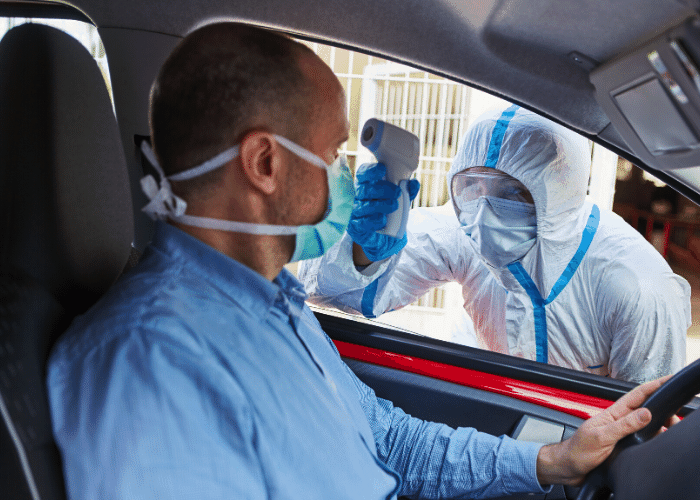
By Bartley Bryt, MD, MPH
There is still a lot we don’t know about the novel coronavirus and COVID-19, the disease it causes. While the world’s scientists and clinicians work to find answers, Americans are forced to live with fear and anxiety about what we don’t yet know.
Immunity is one of those unknowns.
In recent weeks, there have been a flood of tests hitting the market, promising to detect (by a blood test) the presence of SARS-CoV-2 antibodies — the proteins produced by the immune system in response to this particular virus. Typically, the presence of antibodies indicates your body has developed some protection against a particular pathogen. But because this virus is so new, we don’t know if the SARS-CoV-2 antibodies provide immunity, and if so, to what degree and for how long.
Combine that uncertainty with the fact that such tests can produce false positive or negative results — and some of the tests on the market have been particularly inaccurate — and you might get the impression that antibody testing isn’t worthwhile. That’s not true.
When done right, COVID-19 antibody testing can provide a reliable view of how many individuals – especially within a particular community or group – likely contracted, and subsequently recovered from the coronavirus. Getting trustworthy results requires both (1) using a reputable test with strong specificity and sensitivity to reduce false negatives and false positives (2) testing in a population with sufficient number of people with the virus (known as prevalence). (Since antibody tests cannot diagnose active COVID-19, the CDC also suggests people who receive a positive test follow up with a molecular test to rule out an active infection.)
To help illustrate the point that a test can be a valid, reliable, and useful, and yet have some level of false positives and false negative results think about the flu diagnostic test. The flu test is a really good test, with a very high specificity, and it is very useful when properly used, but it’s not perfect. In the summer months, when flu prevalence is low, almost all positive tests in asymptomatic people are probably false positives. In the winter, when lots of people have the flu, the very same test producing a positive in someone with symptoms probably is correctly identifying someone with flu.
In hard-hit regions – like the New York City metro area – COVID-19 antibody testing can provide useful results at both the individual and population levels.
For individuals like Milton Ternier – a bridge painter who received antibody testing through his labor union, District Council 9, and its health plan’s third-party administrator, MagnaCare – it brought peace of mind. Ternier lost his aunt to COVID-19, and testing positive for antibodies has made him feel safer.
“I’m not under the impression you can’t catch it again. I’m still taking precautions to try not to catch it or pass it on,” he said, explaining that he wears his respirator and other personal protective equipment for working with hazardous materials and maintains distance from the other workers on his jobsite.
“But I’m ecstatic to I know I had it, and I didn’t pass away, and I wasn’t sick,” he said.
In a uniquely stressful time, where nearly half of Americans report the coronavirus is harming their mental health, that feeling of relief should not be discounted. Nor should the knowledge these tests can provide to populations like large employers, essential workers and other groups as they make decisions in the weeks and months ahead. In May, for example, New York provided antibody testing to Metropolitan Transit Authority workers to support safety in returning to work. Yes, everyone should still practice safe social distancing and other infection control measures. But wouldn’t it be better to go to work knowing that you and a majority of your colleagues have either safely avoided the virus so far or may have some protection against it?
Yes, there are still unknowns, and antibody testing isn’t perfect, but it is useful. While it cannot be used as an immunity passport, in an upside-down world, these tests can provide valuable knowledge and help individuals make more informed decisions about their own level of risk.
Bartley Bryt, MD, MPH, is the Chief Medical Officer of Brighton Health Plan Solutions, a health care enablement company on a mission to improve how health care is accessed and delivered.
The Editorial Team at Healthcare Business Today is made up of skilled healthcare writers and experts, led by our managing editor, Daniel Casciato, who has over 25 years of experience in healthcare writing. Since 1998, we have produced compelling and informative content for numerous publications, establishing ourselves as a trusted resource for health and wellness information. We offer readers access to fresh health, medicine, science, and technology developments and the latest in patient news, emphasizing how these developments affect our lives.









1 thought on “COVID-19 Antibody Tests Aren’t Perfect. That’s OK.”
Comments are closed.